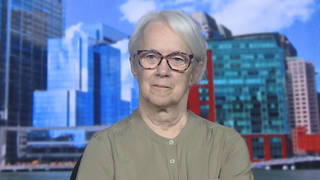
Topics
In the weeks after the September 11 attacks, President Bush said a key element in America’s so-called war onterrorism will be identifying and cutting off the sources of financial support for terrorists. Bush has since signedan executive order freezing the financial assets of several alleged charities that Bush says are fronts for theal-Qaida network. Congress recently passed legislation as part of the anti-terrorism bill which the BushAdministration says will help to close loopholes which make it possible for terrorists to launder their money, andEuropean governments have been working to pass similar legislation.
Over the years, the worlds of terrorism and dollar-based global finance have in fact become so entwined that Bushhimself appears at one point in his career as a private businessman to have been involved financially with associatesof a Persian Gulf banker named Khalid bin Mahfouz. Mahfouz has now been identified in press reports as a source offinancial support for an al-Qaida charitable front–a powerful example of just how far the tentacles ofterrorist-linked offshore money have reached into the fabric of American finance.
Achieving the goal of cutting off the terrorists from their sources of financial support, however, will require muchmore than Presidential speeches. It will require investigators to probe America’s mightiest banks financial giantssuch as Citibank, Chase and J.P. Morgan–and the practices that allow criminals to use them in order to laundertheir funds.
Guest:
- Elise Bean, Chief Counsel for the Senate Permanent Committee on Investigation, and lead researcher on athree phase investigation chaired by Senator Carl Levin into how lax practices by some of our largest banks haveallowed criminals around the world to launder money in the U.S.
Related link:












Media Options